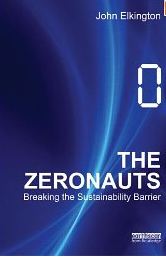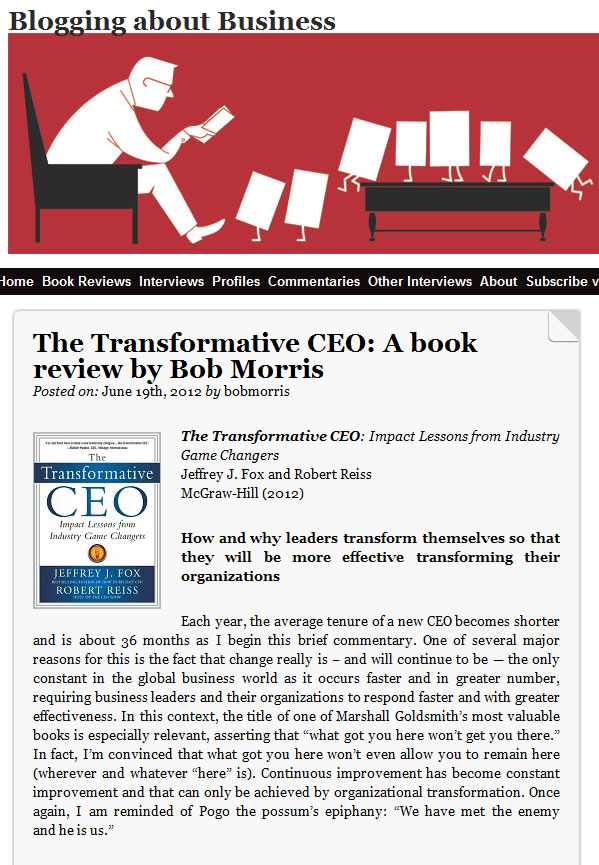As seen on bteam.org:
The B Team is a not-for-profit initiative that has been formed by a group of global business leaders to create a future where the purpose of business is to be a driving force for social, environmental and economic benefit.
The initial B Leaders include: Shari Arison, Sir Richard Branson, Kathy Calvin, Arianna Huffington, Mo Ibrahim, Guilherme Leal, Strive Masiyiwa, Dr. Ngozi Okonjo-Iweala, François-Henri Pinault, Paul Polman, Ratan Tata, Zhang Yue, Professor Muhammad Yunus and Jochen Zeitz. Joining The B Team as Honorary B Leaders are Mary Robinson representing People and Dr. Gro Harlem Brundtland representing Planet.
To learn more about The B Team, check out this article by Arianna Huffington of The Huffington Post:
http://www.huffingtonpost.com/arianna-huffington/people-planet-profit-intr_b_3432011.html.
]]>
 THE Zeronauts, says John Elkington, are pioneers of sustainability, making previously unimaginable contributions to reducing humanity’s footprint on the environment, which is ultimately a footprint on fellow human beings.
Elkington has 40 years of perspective on business sustainability from working with organisations as varied as Ford, Nestlé, and TetraPak. How, he asks, are we to bring down to zero the "five Ps": population growth, pandemics, poverty, pollution, and proliferation? ]]>
THE Zeronauts, says John Elkington, are pioneers of sustainability, making previously unimaginable contributions to reducing humanity’s footprint on the environment, which is ultimately a footprint on fellow human beings.
Elkington has 40 years of perspective on business sustainability from working with organisations as varied as Ford, Nestlé, and TetraPak. How, he asks, are we to bring down to zero the "five Ps": population growth, pandemics, poverty, pollution, and proliferation? ]]>By GARY KENDALL, OCTOBER 16,2012
THE Zeronauts, says John Elkington, are pioneers of sustainability, making previously unimaginable contributions to reducing humanity’s footprint on the environment, which is ultimately a footprint on fellow human beings.
Elkington has 40 years of perspective on business sustainability from working with organisations as varied as Ford, Nestlé, and TetraPak. How, he asks, are we to bring down to zero the “five Ps”: population growth, pandemics, poverty, pollution, and proliferation? “Unless we are in the midst of world war, depression, or an outbreak of bubonic plague, we tend to think of our own civilisation as impregnable, timeless as the mountains. The facts, however, suggest otherwise.”
Humanity has, according to cosmologist Martin Rees, only a 50/50 chance of surviving the century. Elkington quotes former Republican president Dwight Eisenhower: “We must avoid the impulse to live only for today, plundering for our own ease and convenience the precious resources of tomorrow. We cannot mortgage the material assets of our grandchildren without risking the loss also of their political and spiritual heritage.”
The word sustainability is much contested. True sustainability is about gearing down intolerable social conditions and destructive overconsumption, but the term is often twisted to mean “how can we carry on doing business the way we are as long as possible?” An example is the car industry’s promotion of fuel cell technology and the hydrogen economy: as an Elkington case study relates, the automotive sector used the hydrogen fuel cell “to keep public opinion and politicians at bay…. And all this time they were selling diesel engines and protecting their investment in existing technologies.”
But true sustainability is vital for business, even in the short term, because it has become the key driver of innovation. Elkington points to Ram Nidumolu, CK Prahalad, and MR Rangaswami, who wrote in the Harvard Business Review in 2009: “Our research shows that sustainability is a mother lode of organisational and technological innovations that yield both bottom-line and top-line returns … smart companies now treat sustainability as innovation’s new frontier.”
Elkington describes the modern corporation as a remarkable and powerful invention, but also points to research suggesting it is an institution that seldom produces significant leadership.
In this culture, Zeronauts may be in short supply, but there are encouraging signs of the move towards zero. Sweden aims for an oil-free economy by 2020; Denmark will cut out all coal and oil by 2050 without resorting to nuclear power; the US General Services Administration, the biggest public works department in the world, has set itself the goal of zero environmental footprint. By 2020, PepsiCo plans to make its operations fossil-fuel-free, have its largest factories achieving zero water intake, send nothing to landfill across its entire supply chain, and make all product packaging from renewable resources.
These trends may be inspired by idealism but are made practical by substantial cost savings.
South African companies are notable for their absence from Elkington’s list of sustainability heroes. While the local business sector has shown some degree of global leadership in its response to initiatives, there is not yet a broad recognition of the deep social and moral dimension to sustainability — to say nothing of the opportunities it presents.
This may be because many companies are up against the reality that their businesses are inherently unsustainable, and so trying to make them sustainable is rather missing the point. Coal power will never be sustainable, mining finite resources will never be sustainable, and fuelling obesity with sugar-laden processed foods will never be sustainable.
The Zeronauts, Elkington concludes, are “ambassadors from the future”, plenipotentiaries whose gifts and visions of unseen realms we mock at our peril.
About the author
JOHN ELKINGTON
Elkington is a world authority on corporate responsibility and sustainable development. His first contribution to the field was raising money for the newly formed World Wildlife Fund in 1961, when he was 11. Recognised as a “a true green business guru” and “an evangelist for corporate social and environmental responsibility long before it was fashionable”, Elkington was among the 1,000 Most Influential People in London in 2008, as named by The Evening Standard.
He is a founding partner and executive chairman of Volans, a future-focused business working at the intersection of the sustainability, entrepreneurship and innovation movements. He is also a co-founder of SustainAbility, where he remains a nonexecutive member of the board, and of Environmental Data Services.
He was placed fourth in the 2009 Corporate Sustainable Responsibility (CSR) International survey of the top 100 CSR leaders after Al Gore, Barack Obama and the late Anita Roddick of the Body Shop, and alongside Muhammad Yunus of the Grameen Bank. Last year, he was awarded the Spencer Hutchens Jr Medal by the American Society for Quality for his outstanding leadership as an advocate for social responsibility.
Source: Rothko Marketing
• Kendall is deputy director of the Cambridge Programme for Sustainability Leadership’s South African office.
]]>“If we are to create a global economy that works for the nine billion people forecast by midcentury, then for the sake of the global climate and for the survival of many other species we have no option but to turn today’s capitalism inside out and upside down.” -John Elkington, author of THE ZERONAUTS.
The full article can be found here.
The full book review by Bob Morris for TRANSFORMATIVE CEO by Jeffrey Fox and Robert Reiss can be foundhere.
Review for IGNITING THE FLAME by Jim Reisler
Reisler, Jim. Igniting the Flame: America’s First Olympic Team. Lyons: Globe
Pequot. Jun. 2012.
Today’s Olympics are a humongous international event costing billions of
dollars to produce so they can be watched worldwide by billions of people.
As described here by sportswriter Reisler (Babe Ruth Slept Here), the first
“modern” Olympics, held in 1896 Athens, were drastically smaller and
drastically different. For example, described as a “glorified pickup squad,”
the full U.S. Olympic team consisted of 14 athletes from only three
organizations (Princeton, Harvard, and the Boston Athletic Club). Also,
before the games got under way, the American public was barely aware that
the event was to be held. Once the U.S. athletes and their scholarly
entourage arrived in Greece, articles were sent back to American newspapers
describing the U.S. team’s success. The athletes won nine of the 12 track
and field events held. One of the best stories here is about American Robert
Garrett, who won the gold medal in the discus despite taking up the event
for the first time on the very day of the competition.
Verdict This fun and accessible read is recommended to all coming Olympics
watchers interested in putting today’s games in historical perspective. The
photographs, appendix of award winners, and notes will add to the reader’s
experience.—Todd Spires, Bradley Univ. Lib., Peoria, IL
